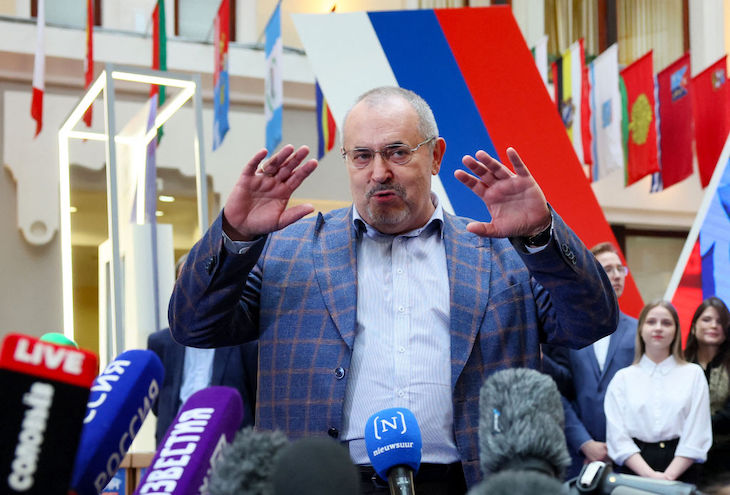Despite a little eleventh-hour drama, Boris Nadezhdin’s bid to become the only genuine opposition candidate in March’s Russian elections has been blocked. What’s interesting is not that he was barred, but what this whole process says about the evolution of ‘late Putinism.’
Once, after all, it was marked both by a – limited but real – degree of genuine pluralism, especially at a local level, and also dramaturgiya, a theatrical facsimile of genuine democratic politics. The elections were stage-managed, of course, and the so-called ‘systemic opposition’ knew that their job was to put on a show rather than actually challenge the regime. Nonetheless, the showrunners appreciated the importance of spectacle, both to attract the punters and to convince them that this was real.
Nadezhdin is defiant, and is appealing to the Supreme Court
To this end, in the 2018 presidential elections, socialite TV personality Ksenia Sobchak ran as a notional liberal candidate, even though even she admitted that ‘in a system created by Putin, it is only possible for Putin to win.’

Britain’s best politics newsletters
You get two free articles each week when you sign up to The Spectator’s emails.
Already a subscriber? Log in







Comments
Join the debate for just £1 a month
Be part of the conversation with other Spectator readers by getting your first three months for £3.
UNLOCK ACCESS Just £1 a monthAlready a subscriber? Log in